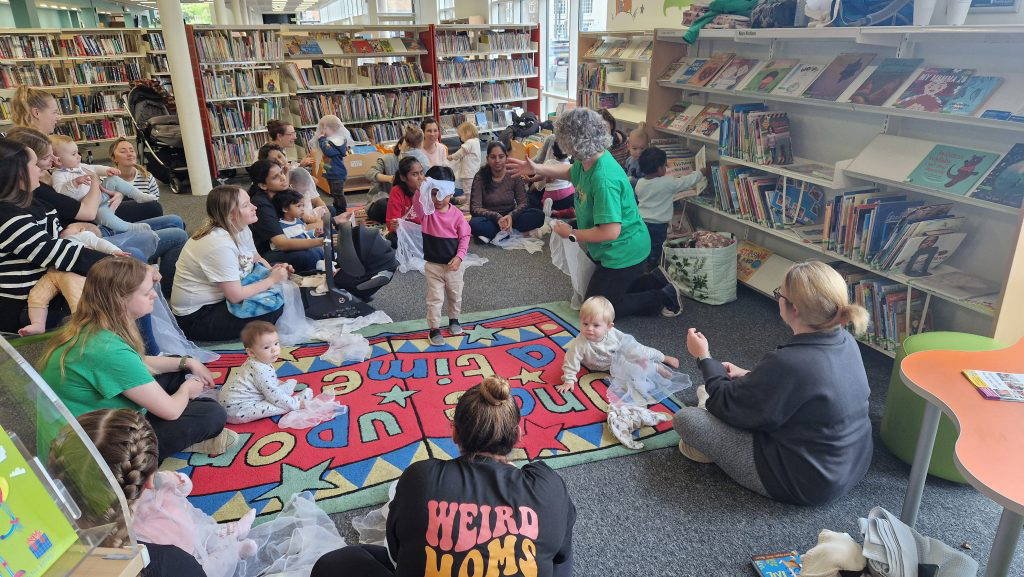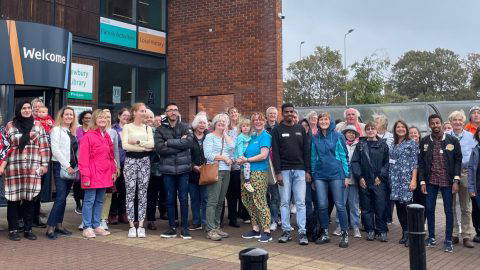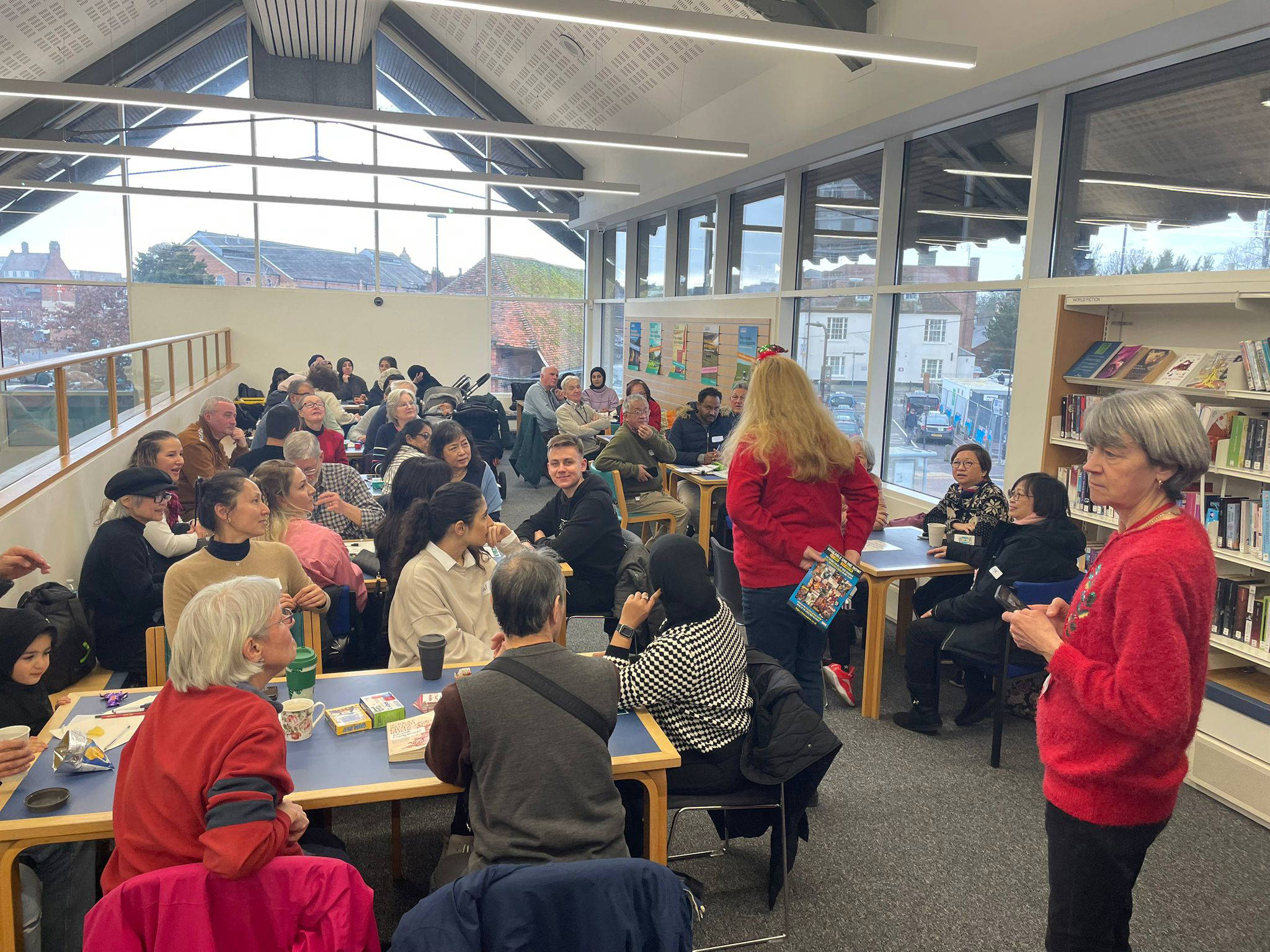Why the UK Government should look to Educafe for inspiration
A recent statement by a senior UK minister in The Guardian describes the civil service as “too remote from people’s lives,” highlighting an urgent need for more grounded, preventative, and cost-effective models of public service delivery. At Educafe, we believe we already offer such a model—one that is community-led, relational, and economically sensible.
Educafe is not a government agency. We’re a grassroots social enterprise. But in the everyday challenges we address loneliness, mental health, employment support, English language access and early-years development. We’re doing the work that public services struggle to deliver consistently and preventatively.
Here’s how Educafe can inspire a bold, scalable, and human-centred rethink of the civil service’s place in people’s lives.
(1) From Policy to Pavement: embedding services in community hubs
“People in Whitehall do not always understand what’s going on in communities.”
— UK Minister for the Cabinet Office, June 2025
Educafe in Action
Every Wednesday in Newbury, West Berkshire, Educafe transforms a town-centre space into a vibrant community hub. People drop in for free coffee and cake—and stay for English lessons, mental health advice, baby-friendly acivities, community navigation, or simply a warm, friendly chat.
This isn’t outreach. It’s belonging.
By bringing together NHS workers, social prescribers, jobcentre teams, ESOL tutors, and local charities, Educafe models how frontline services could share space, share insight, and lower the barriers to public access.
(2) Prevention over firefighting: saving costs by acting early
Public services often intervene too late, leading to spiralling costs in health, housing, and crisis support.
Case Studies:
- ~ A Ukrainian refugee visits Educafe’s free English café. She’s connected not only to language support but to employment advice and childcare solutions.
- ~ A local mum with undiagnosed postnatal depression talks to a volunteer and is gently referred to mental health support and a parenting group.
- ~ A man out of work and confidence begins volunteering at Educafe, regaining purpose, routine, and a pathway into employment.
One shared space. One welcoming environment. Multiple early interventions. This is preventative public service in action—and it’s far cheaper and more effective than crisis-led models.
- (3) Co-design and agile delivery: A test-and-learn culture
Educafe’s services have evolved because we listen first and respond fast. When the cost-of-living crisis intensified, we launched a clinic to refer people to services that were available to manage their finances. When parents struggled with access to Early Years experts, we invited those experts to join us. When older men reported isolation, we set up board game sessions.
This test-and-learn approach could easily complement the Cabinet Office’s ambitions to empower civil servants to innovate more freely.
Imagine this model embedded in regional hubs across the UK—each one shaping services with, not for, the people who use them.
- (4) A decentralised, human-facing civil service
Government plans to move 22,000 jobs out of London are welcome. But relocation must be more than geography—it needs to bring policy closer to people.
Educafe hubs could:
- ~ Host localised civil service outposts where departments regularly engage with citizens.
- ~ Act as community intelligence points, surfacing lived experiences to inform national decisions.
- ~ Provide meaningful placements for civil servants seeking to reconnect with frontline realities.

(5) A scalable, cost-saving model
The government forecasts up to £94 million in annual savings from reducing the London estate. Educafe shows how shared infrastructure, volunteer-powered delivery, and relational working can stretch limited resources further.
We estimate that for every £1 invested in Educafe, the savings to the economy are, at a very minimum, quadrupled. For our weekly hub serving 6,000 visitors per year, its estimated that cost savings reach approx £1m. Expand this around the country and we’re looking not just at millions saved in pounds, but thousands of lives saved, and communities empowered to thrive.
By integrating Educafe into regional delivery strategies, government could:
- ~ Share costs across departments and VCSE partners.
- ~ Unlock community assets to reduce property expenditure.
- ~ Deliver high-impact support in low-cost, high-trust settings.
Let’s Build It Together
Educafe is ready to partner with national and local government to pilot this approach. We’re inviting:
- Civil service teams to co-locate with us and co-create with communities.
- Policy-makers and ministers to visit our hubs and experience relational public service.
- Local Authorities and ICSs to collaborate on joined-up, community-led delivery.
- Cabinet Office teams exploring reform, AI integration, regional innovation, and social value.
Together, we can design a civil service that’s more visible, more preventative, and more connected to the people it serves.
Interested in piloting an Educafe-style hub in your region? Want to explore a government–VCSE partnership that puts people first? Get in touch with the team.


